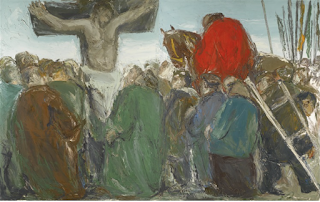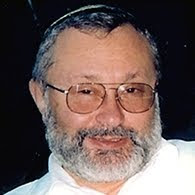One of the most personal moments in the Passion
One of the most personal moments in the Passion story is when “At three o’clock Jesus cried out with a loud voice, ‘Eloi, Eloi, lema sabachthani?’ which means, ‘My God, my God, why have you forsaken me’?“ Mark (15:34) and Matthew (27:46), believed to be the earlier written gospels, both cite these as Jesus' only words from the cross.
Interpreters of the story have long wondered how to understand this verse. To whom is Jesus speaking? Does this one sentence convey Jesus’ sense of abandonment by God? Or are we to understand this opening verse of Psalm 22 as a means of quoting the entire psalm?
Either way, I think, is a good way of hearing Jesus. By most all evidence, God is not coming to the rescue. The end is near, and the end is certain. Jesus’ proclamation of the kingdom of God seems to have been killed by the powers of domination. There will be no conquest for this soon-to-be lifeless Messiah. I can identify with those moments of desolation, where there is no help, no rescue, no visible hope. That is an all-too-real part of life as a creature on this earth.
However, did not Jesus, like this gospel storyteller, knew the whole psalm? And would hearing even just this cry by itself call to mind the whole psalm?
The psalm, the song, the prayer, begins with this deep plea for rescue. And that plea never leaves us. In those hours before Sabbath, there is no rescue. Jesus is persecuted, he suffers, he dies.
But in faith, we believe and we may be blessed to know that his hope did not die. Even before the Great Paschal Mystery made itself known, those words that the dying Jesus brought to his lips continue to the future, the Lord’s promised “deliverance to a people yet unborn.” The psalm, and Jesus, both speak to the fidelity of God, to a world that will come, that is coming into being. A world where the poor shall eat and be satisfied, where the ends of the earth come to their senses and turn to the Lord, the only authority deserving of worship, the One who proclaims the gospel of peace, and whose banner over us and for us, is love.
I hope for, and choose to put my trust in, this story.
But we cannot skip by the way Jesus died. There were and are so many others who suffer and die.
I was in church earlier today, thank you brothers and sisters of St. Paul & Incarnation, and as we said the psalm together, in the great assembly, just as they have done in Temple and synagogue, I heard these words: “From you comes my praise in the great congregation…”
On Jesus’ lips, this Friday, from the cross, the great congregation who hears his plea and his praise is populated by the ones on the other side of the cross.
Jesus’ praise that day, and this day, are heard - or not - by those who see him dying, by those who helped put him there.
“But I’m not a killer,” I think.
And then I remember:
I have killed with my eyes and with my thoughts,
with my rage and my indifference,
with my silence and my mere protest,
with my denial and blame,
with my taxes, and with my unwillingness to give.
And to forgive.
I have let fear rule my life.
But You are You.
And neither You nor I are done with me yet.
I pray for your grace, and give thanks.
We wait for all things in their time,
But I can no longer wait for new life.
NOTES:
Anatoly Slepyshev. Crucifixion crowd (diptych), 1990.
Image from "Jesus is Crucified on the Cross - Good Friday."
Thanks to Rev. Martin Malzahn, who gave me an additional good word which I haven taken to my heart.
And thanks to all the people of God who encourage me, challenge me, walk with me, and at our best, incarnate love.
POSTSCRIPT:
Reflecting on how I came to hear this, it came directly from voicing the part of Pilate as we heard John's gospel. Good casting. I know something about being a functionary of the State. The crowd shouts "Crucify!", while the one who will sign the death warrant is continually avoiding responsibility and shifting the blame. This is the sin of adam, repeated again and again and again, throughout human history and our personal histories. Until that moment where we individually and even collectively come to that moment of metanoia, a transformative change of heart and mind and life. We now re-cognize that the heart of Pilate's question is the choice between complicity with domination, or wholeness, health, justice, shalom. And we can answer that invitation "¡No mas! I choose life."
We may fail to live out this truth. But we can no longer plead ignorance, only weakness.





Comments